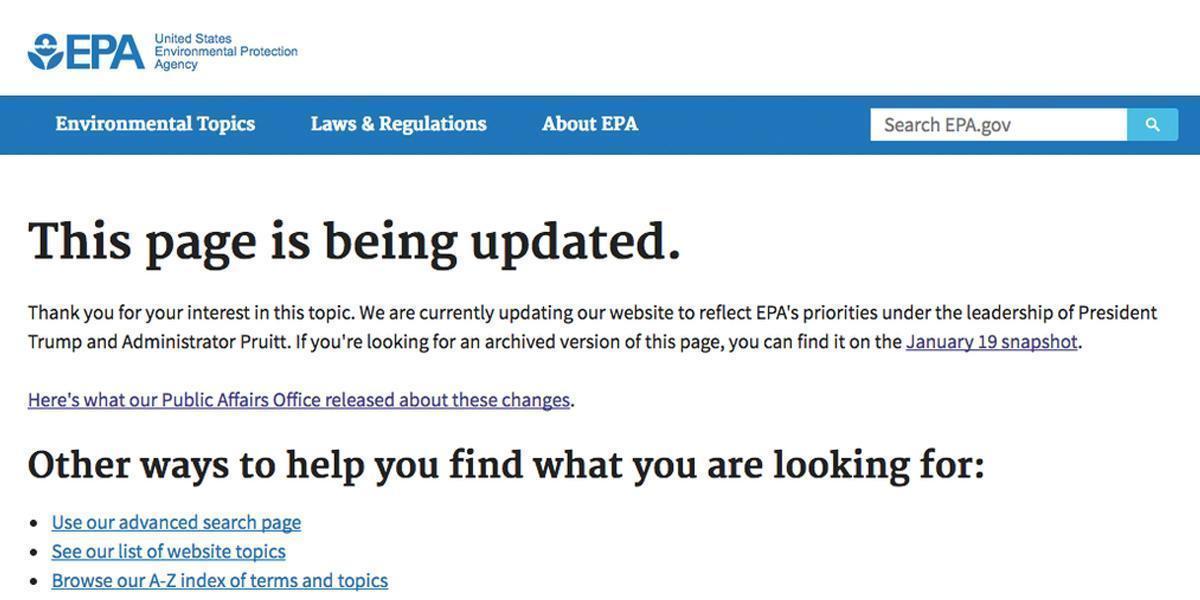

The U.S. Environmental Protection Agency (EPA) is editing pages from its website related to climate policy to better “reflect the views of the leadership,” the agency announced Friday.
One of the pages that is no longer accessible is the EPA’s decades-old climate change information hub, which had been widely cited in response to EPA chief Scott Pruitt‘s claims that carbon dioxide was not a primary contributor to global warming. (Here’s an archive, if you’re feeling nostalgic.)
Other edits, which sources say were approved by Pruitt, include removing resources related to the Clean Power Plan and adding language calling for its review. A spokesperson for the EPA said the changes were meant to “eliminate confusion” by “removing outdated language first and making room to discuss how we’re protecting the environment and human health by partnering with states and working within the law.”
However, the Environmental Data and Governance Website Tracking Initiative, a nonprofit group that is tracking changes to climate information on federal government websites, said in a statement:
“While it remains to be seen how information and information access will change as the EPA site is updated, it is concerning that this overhaul was not announced until the same day that pages like the Climate Change page, which serve as important public resources, were already becoming unavailable.
“The timing of this overhaul cuts off availability when access to trusted information about the science behind climate change will be necessary to enable a conversation about our changing climate.”
For a deeper dive:
Washington Post, The Guardian, Reuters, Politico, USA Today, Mashable, Fusion, ThinkProgress
For more climate change and clean energy news, you can follow Climate Nexus on Twitter and Facebook, and sign up for daily Hot News.

 233k
233k  41k
41k  Subscribe
Subscribe 